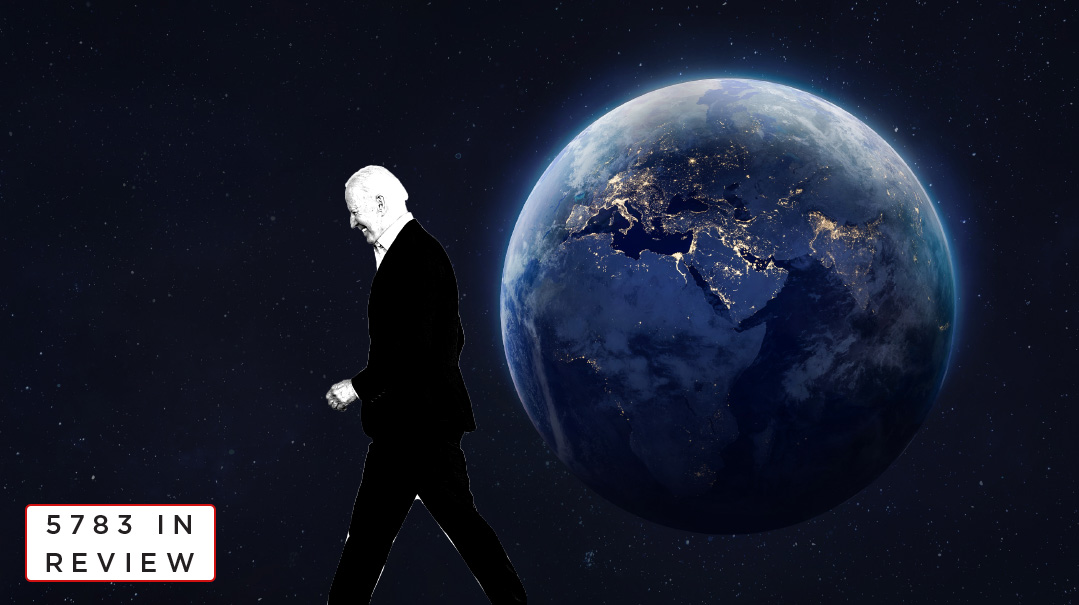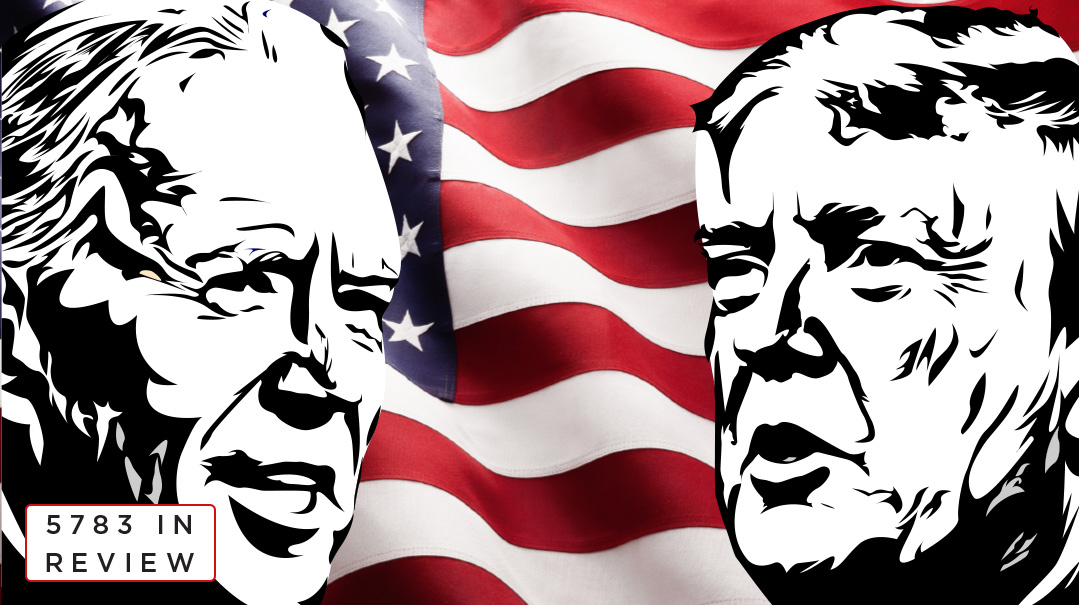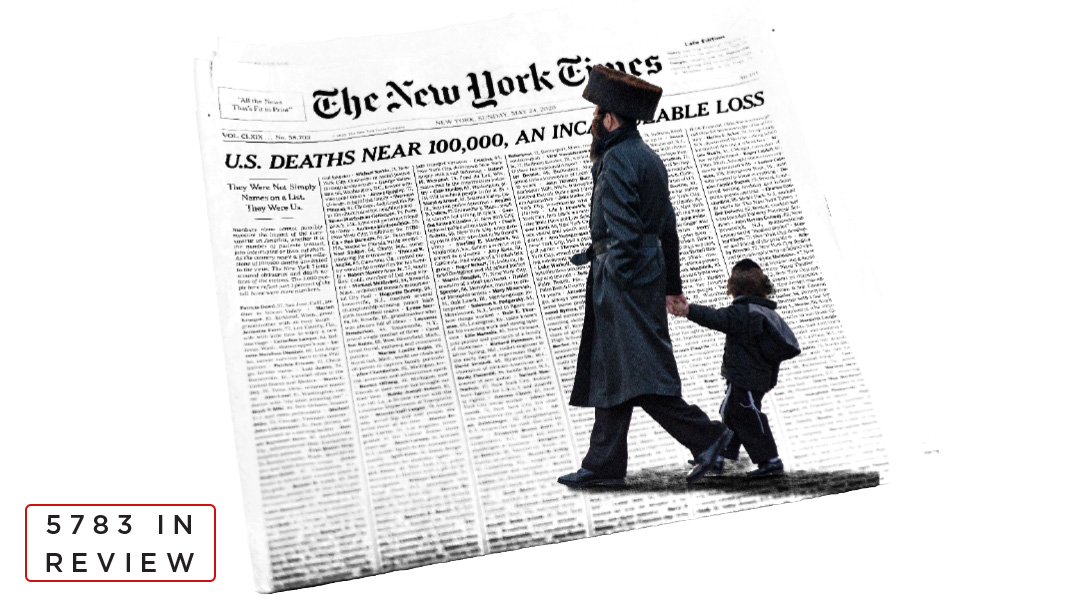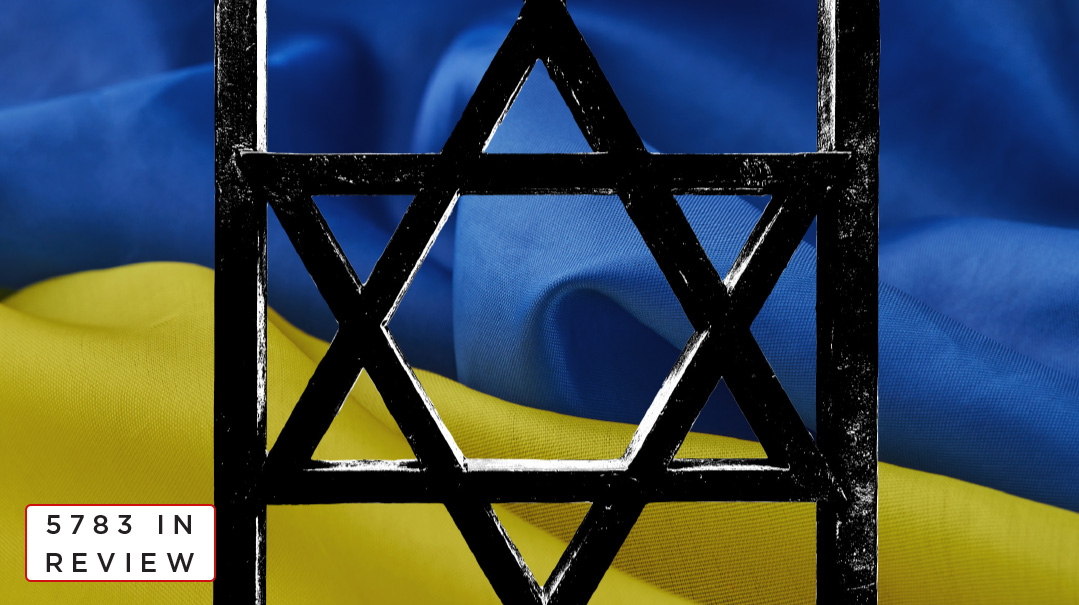Worldview: 5783

Eight years after his rise, the fact that the Trump era hasn’t run its course is the biggest political story of the year

The B-List Year
IF
global politics was show business, the last year would have ranked as B-List: bewitched, bedeviled, and befuddled, to be precise.
Begin with the bewitched: Like a cobra mesmerized by a snake charmer, the Republicans seem utterly transfixed by Donald Trump who is on a glide path to the 2024 nomination, despite a ream of indictments and the yappings of political rivals.
Trump’s possible return — made increasingly likely by Joe Biden’s disastrous poll numbers — remains the organizing principle of American politics. It dictates that the Democrats stick with an aging Biden for his record of beating Trump. It also has international ramifications: both Russia and Ukraine, for example, are aware that the former president is no fan of the open checkbook approach to Kyiv, and that knowledge alone will factor in military planning.
Eight years after his rise, the fact that the Trump era hasn’t run its course is the biggest political story of the year. It will lead either to four more years of populism in the White House, or to an avoidable GOP loss to Biden’s Democrats.
The second dynamic involves a global right bedeviled by the residual power of the left to shape events. That is the bottom line of Israel’s judicial reform controversy: by threatening to reduce IDF combat readiness and destabilize Israel’s economy, the left has effectively torpedoed any meaningful rebalancing of the overly powerful High Court. Never mind that many center-left politicians have in the past called for the same moves: this is all about bringing down the Netanyahu government, whatever the cost.
That storyline is far from unique to Israel. The Twitter Files released after Elon Musk’s takeover of the company this year, disclosing how the company had suppressed the Hunter Biden laptop story in the runup to the 2020 election, highlighted the way that dominance of the commanding heights of the economy hands the left important levers of influence beyond government.
That brings us to the befuddled, which is one way to describe America’s current approach to foreign policy. Over the last year, Kyiv has been handed enough weaponry to stay in the fight, but only incrementally. There is no reason that Zelensky’s forces couldn’t have been given the F-16 jets they need long ago. But instead, from sending rockets to tanks, at every stage the White House has had to be dragged into ramping up support.
The explanation is ambivalence. It’s clear that Biden wants to win, but only if he can do so relatively cheaply, by adding to America’s mountainous debt and drawing down military stockpiles.
Hesitancy is an indulgence that has been bred by a generation of US military supremacy, which lulled Americans into a sense that the country’s dominance was just a question of cash and cruise missiles, not American lives.
This is likely one of the last years that this mindset will be affordable. As it circles Taiwan, China is watching America closely. Conflict over the island nation would leave no room for hesitation; it would force the US to choose whether to fight in earnest against a near-peer in military terms, or step away and see China dominate Asia.
If there’s anything that ties together the resurgent Trumpism, left-wing deep-statism and foreign policy hesitancy, it’s an overall sense of American malaise, which has led to deep domestic splits and an inward-looking elite.
It’s been a “B-List” year for world politics, headlined by the three dynamics that will shape domestic and foreign policy for years to come, but it all comes back to one big “D”: a sense of American decline.
What’s Up
Democrats suddenly talking tough on immigration. New York mayor Eric Adams is leading the way with his latest warning that immigration “will destroy New York City,” and his neighbor, New Jersey governor Phil Murphy, has gone from declaring his state an immigration sanctuary in 2017, to warning recently that New Jersey was full. What gives? Perhaps the reality that ordinary Americans actually want secure borders.
What’s Down
Republicans have reversed course on their own issue, with leading GOP figures such as Trump downplaying pro-life themes in the year since Roe v. Wade was overturned. As moderate Republicans are aware, abortion has become an electoral millstone. Expect Nikki Haley’s call for “consensus” — i.e., less conservative positions — to echo more widely.
Veg of the Year
Remember Liz the Lettuce? A head of iceberg briefly became a media sensation this year, when a British tabloid live streamed a lettuce topped with a wig meant to represent the wilting prospects of Conservative prime minister Liz Truss, who succeeded Boris Johnson. The lettuce indeed outlasted the country’s shortest-lived premiership. Having spooked the markets with unfunded tax cuts, interest rates jumped and Truss was forced out of office after seven weeks.
Beyond a lesson about the power of financial markets over medium-sized countries, Liz’s leafy interlude will go down in history for another reason: her term began in the Elizabethan age, and after the Queen’s death, she served under King Charles III.
5
Marine disasters claim hundreds of lives every year, and yet when five men aboard a submersible on their way to explore the wreck of the Titanic were lost deep under the Atlantic in June, the world was transfixed with horror. The tragedy focused attention on the wreck’s enduring magnetism: there is a large, online “Titaniac” community of obsessives who document the liner’s history, and some pay large sums to see the famous ship up close. The eeriness of the tragedy was widely noted: a century after the liner sailed to its doom, it still continues to claim new victims.
“Why did Hashem take brothers?”
These harrowing words — uttered by well-known Israeli maggid Rav Baruch Rosenblum, in the wake of the murders of the young Paley brothers before Purim — were on many minds in the aftermath of the tragedy. They echoed more than once in the months that followed as Arab terrorists killed first brothers Hillel and Yagel Yaniv in Hawara in March, and sisters Maia and Rina Dee, together with their mother, Leah, the following month.
Although Rav Rosenblum stressed that ultimately it was impossible to know Divine calculations, there was an obvious message about the Jewish People’s internal enmity and lack of brotherhood.
With the Jewish People both in Israel and abroad more divided than they’ve seemed for a long time, those words could be the epitaph for a whole year of strife.
(Originally featured in Mishpacha, Issue 978)
Oops! We could not locate your form.







